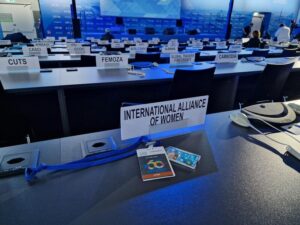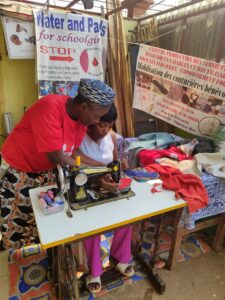 International Alliance of Women welcomes the opportunity to offer comments on the Final Draft Agreement on the Post-2015 Agenda.
International Alliance of Women welcomes the opportunity to offer comments on the Final Draft Agreement on the Post-2015 Agenda.
In order for the Post Development Agenda to be transformative it must be based on human rights and ensure that goals and targets are underpinned by the principles of equality and non-discrimination.
However, the Post-2015 Agenda fails to establish the structural conditions to respect, protect and realize women’s human rights. It fails to do so because economic and financial rules, the neoliberal economic system and concentration of wealth as well as unequal power relations are not adequately addressed in the Post-2015 Agenda.
Little attention is for example given to the structural barriers for women’s economic rights and access to, ownership of and control over economic resources i.e. the unequal distribution of unpaid care work or the persistent gender discrimination in the labor market (through vertical and horizontal segregation and over representation of women in precarious and low-paid jobs).
In parts of the world, women’s increased participation in the labor force has not translated into decent work, equitable pay, safe working conditions and adequate benefits. Migrant women continue to face multiple forms of discrimination as they seek work opportunities outside their home countries.
Women still subsidize the entire economy by performing most of the unpaid domestic and care work derived from the sexual division of labor. The burdens of these tasks are the main obstacle for women to fully exercise their rights, as it demands from them an excessive time use and their entire energies. Unpaid domestic and care work which derives from discriminatory gender roles should be recognized and valued.
Moreover, costs and burdens must be reduced and more evenly distributed between the state, community and family and in families between partners, whether women, men, other gender identity. Care givers should not have to sacrifice their rights, income, life choices or opportunities.
The language of the goals and targets 5.4, 5.a, and 8.5, 8.8 cover many of the aspects referred to above. However, governments will have to move from commitments to accomplishments. We therefore advocate for feminist transformational change rather than business as usual.
Finally, we affirm our continued position in demanding a development agenda that is designed to realize gender equality and women’s human rights.


